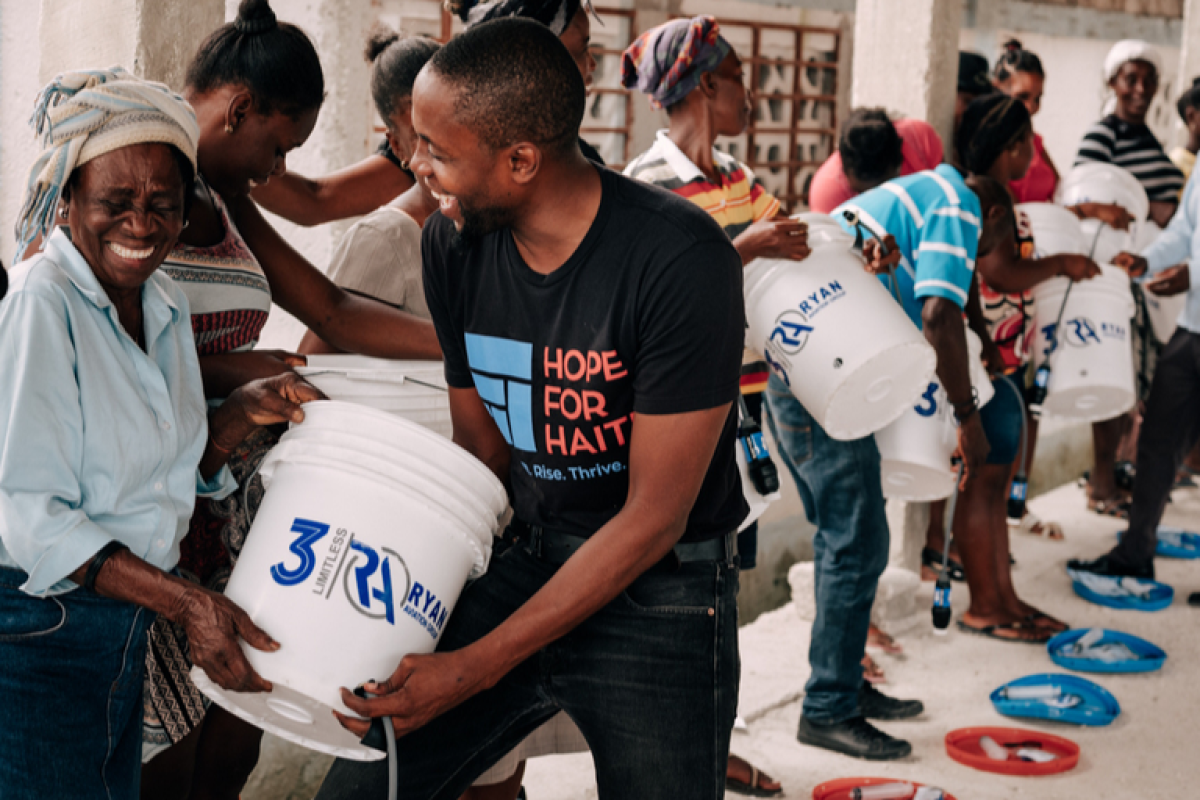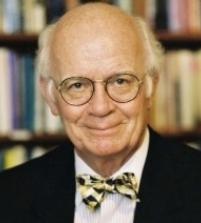
Cultural Disruptions
Martin Marty on the importance of seeking out stories of human goodness in the darkest days
Ed. Note: Today’s column revisits a Sightings essay by Martin E. Marty from a decade ago, titled “Cultural Disruptions” (February 8, 2010), which was written in the aftermath of the devastating 2010 Haiti earthquake. In this essay, Marty draws on a quote from José Ortega y Gasset that he has often returned to during moments of tragedy, crisis, or uncertainty: “Decisive historical changes do not come from great wars, terrible cataclysms, or ingenious inventions: ‘It is enough that the human heart incline its sensitive crown to one side or the other of the horizon, toward optimism or toward pessimism, toward heroism or toward utility, toward combat or toward peace.’” In this moment of global seismic activity, and in the months and years to come as we experience its aftershocks, Sightings will continue to counterbalance the “terribleness” of humanity that is so often on display in these times by seeking out those stories that tell of the “human heart inclin[ing] its sensitive crown” toward good.
This week we reflect on issues posed in a thoughtful piece by Leon Wieseltier in the February 18th New Republic, titled “Aftershocks.” A question it inspires: Is there a framework in which to place the fights-of-the-week that made news on the “religion and public life” front in recent days? We refer to publicized fights over suspect sponsors of prayer breakfasts, trafficking of children in Haiti, pop-culture churches that sponsor “extreme fighting” in the name of Jesus who is billed as an extreme fighter, and the religious fight of the century—don’t ask, don’t tell (about sex, of course). All of these disturb and disrupt the healing messages of religious bodies of all sorts everywhere.
Wieseltier finds a framework in talk about realism, which can help counter the mere fatalism that is so culturally current and widespread. He takes off from responses to the Haitian earthquake, which include silly and cruel theodicies like one voiced by the Reverend Joseph Lejeune in a tent city at Port-au-Prince: “Life is not disaster. Life is joy!” On the other hand, he is suspicious of more serious attempts to avoid the questions of theodicy among those who fault only the human causes of Haitian misery. The new-atheist uses of the event to “prove” the non-existence of God are also unconvincing.
Wieseltier’s conclusion relates to humanisms: “It is just not the case that the less you believe in God, the more you believe in man… Whether or not God exists, we do, and much of the time—though not now, as the planes clog the runways in Port-au-Prince—we are terrible.” We are terrible. Give Wieseltier credit for wrestling with the bigger questions of the human story. He is at least focusing properly.
It is time to haul out the passage from José Ortega y Gasset that has guided my own cultural-religious inquiries through the decades. Reporting on wars, after earthquakes, financial crisis, et cetera is one thing, but “decisive historical changes do not come from great wars, terrible cataclysms, or ingenious inventions: ‘It is enough that the human heart incline its sensitive crown to one side or the other of the horizon, toward optimism or toward pessimism, toward heroism or toward utility, toward combat or toward peace.’” We can substitute other terms for Ortega’s “optimism,” “heroism,” and “peace,” so long as they signal alternatives to the presently dominating nihilism, political “no”-saying, polarization, cynicism, and pop-cultural escapism.
Stories of positive alternatives tend to be overlooked and even buried. Wieseltier finds one of these exceptions symbolized by the planes bringing relief to Port-au-Prince. Those who look closely can also see how many humanizing and healing efforts are rooted not in the publicized contributions of celebrities, though there are good reasons to applaud even their short-lived efforts, but in sacrifices and gestures made by people in overlookable places such as local voluntary associations, congregations, parishes, synagogues, scout troops, and families who regularly go about their business.
Those who make up these bodies and units and agencies do know, as Wieseltier reminds us, that “we are terrible,” but terribleness is not the last word. Politicians, broadcasters, bankers, and marketers often disdain those who help “incline the sensitive crown of the human heart” toward longer visions, incentives, and actions that might profit us and our not-always and not-only terrible contemporaries. But Lincoln’s birthday Friday [Feb. 12] might call to mind a leader who invoked “the better angels of our nature,” or, if talk of “human nature” makes us uneasy, then the better angels of our story.
Sightings is edited by Joel Brown, a PhD Candidate in Religions in the Americas at the Divinity School. Sign up here to receive Sightings via email. You can also follow us on Facebook and Twitter. The views and opinions expressed in this article are those of the author and do not necessarily reflect the position of the Marty Center or its editor.
Image: Volunteers with “Hope for Haiti” provide assistance following the 2010 Haiti earthquake.
*José Ortega y Gasset is quoted in Karl J. Weintraub, Visions of Culture (University of Chicago Press, 1966).



